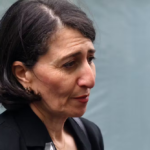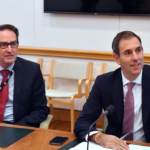Multiculturalism is who we are
According to recent surveys, multiculturalism is endorsed by the vast majority of Australians. David Morris is optimistic about Australia’s diverse culture, if we nurture and strengthen our common values and identity.
I was as shocked as any reasonable person at the news of the attacks on two Jewish families peacefully walking down the street in Sydney recently. I was appalled to read that racial and religious abuse turned into violence. Luckily, such events are rare in Australia. Indeed, as one of the victims of the violence said, what occurred is “is not what Australia is about.”
There are two important reasons to be optimistic about Australia’s multiculturalism. One is that settler societies, like Australia and Canada, learn to adapt and incorporate diversity into the national narrative. This makes us appealing for migrants, as well as for all of us who benefit from the diversity of our culture. Acceptance, even celebration, of difference makes for a much stronger and safer community than one where people feel threatened by difference.
Recent surveys in Australia and Canada, both successful settler societies, indicate that multiculturalism is endorsed by the vast majority. That is just as well, as there is no going back. It is who we are. Citizenship in Australia means participating in building the nation as much as subscribing to common values. Witness the impact each wave of migrants has had on expanding Australia’s business, social and cultural world.
The second reason for my optimism is that Australia’s very identity is increasingly inclusive and egalitarian. We have talked about mateship and the fair go for as long as anyone can remember, but in recent decades we have begun to truly extend those concepts to everyone in the community.
The Australia I grew up in was in the process of shedding the worst of “White Australia” but was still in serious denial about its growing diversity. In 1967 we started to count First Australians in the census, a small but important first step in recognition. And in recent decades we have become one of the great success stories of mass immigration. Look around you, at your friends and family. You can be sure many of them or their parents are from a range of countries, religions and ethnicities. And, guess what, we all consider ourselves Australian.
It wasn’t always so. Even though in my school classroom I had friends of Greek, Aboriginal, Chinese, Czech and many other backgrounds, the world we were taught about was England. “Home”, as many of the older generation referred to it. If our teachers embraced the new, it was a reluctant embrace of America perhaps, with a nod to some vague future potential of Asia. We certainly learned nothing of Aboriginal Australia.
In my school days, a Union Jack still hung beside the Australian flag, the picture of the Queen hung on the wall and we all sang “God Save the Queen” at each assembly. There was no doubt what culture we were celebrating. It was a monoculture, and we were taught to be proud of its gifts and to ignore what came before or what might replace it.
With a little more investigation, however, it turns out Australia has been developing our very own values and ethos and multiculturalism is at its core. Since the Eureka Stockade, Australians of a range of backgrounds have fought for and won rights that perhaps these days some of us take for granted. We led the world in many reforms, including votes for women, secret voting and elected upper houses. And why? Because there was a deeply democratic attitude amongst Australians that all deserve an equal say and a fair go. By extending these concepts to all in the community, we are living up to our stated values more than ever.
There might be exceptions, and I don’t deny there are, but compared with most places on earth we are building a remarkably easygoing lifestyle here in the place we all call home.
We do need to resist the temptation of some to focus on the negative. And we do need to attend to our common values and identity, to nurture them and strengthen them. This is especially important in a settler society, one like ours that was built on a great denial and that then imposed a great monoculture for much of our formative history.
To strengthen our common values and identity, we need to make two updates to the document that underpins our nation, our Constitution. That document was designed to be amended by successive generations, to keep up with changing times. We need to remove the racially exclusive provisions; recognise the First Australians; and confirm that our sovereignty is shared amongst all our people and not held by an English person in a castle on the other side of the world.
Together with multiculturalism, recognition and the republic are the great landmarks that we can look forward to, celebrating modern Australia and how far we have come.
But meanwhile we cannot be complacent, because our identity, our values and whether or not we live up to them, remain every day a work in progress.
David Morris is a former diplomat, trade and investment official and former National Director of the Australian Republican Movement. He is a former diplomat, senior political adviser, and consultant on community engagement and international trade and investment. David has designed and led dialogue and deliberative processes at regional, national and international levels. He has represented Australia on diplomatic postings and on high-level missions to China, Hungary, India, Ireland, Japan, Malaysia, the United States and the United Nations. David has published on UN peacekeeping, Australia-China engagement, city branding and an Australian republic. He was the inaugural Executive Director of the China Studies Centre, which he established at the University of Sydney, and is a graduate of Henley Business School and an Honorary Associate, Graduate School of Government, University of Sydney. Twitter: @dm_aus















Jim
December 7, 2013 at 2:37 pm
Its only happening to white nations
‘Genocide involves the attempt to achieve the disappearance of a group by whatever means. It does not have to be violent, it could be a combination of policies that would lead to a certain group dying out.’ Malcolm Fraser (Prime Minister of Australia 1975-1983)
Force flooding EVERY & ONLY White countries with MILLIONS of non-Whites and FORCE assimilating them into all aspects of white society IS geNOcide. Nobody’s doing this to ANY Asian or Black country.